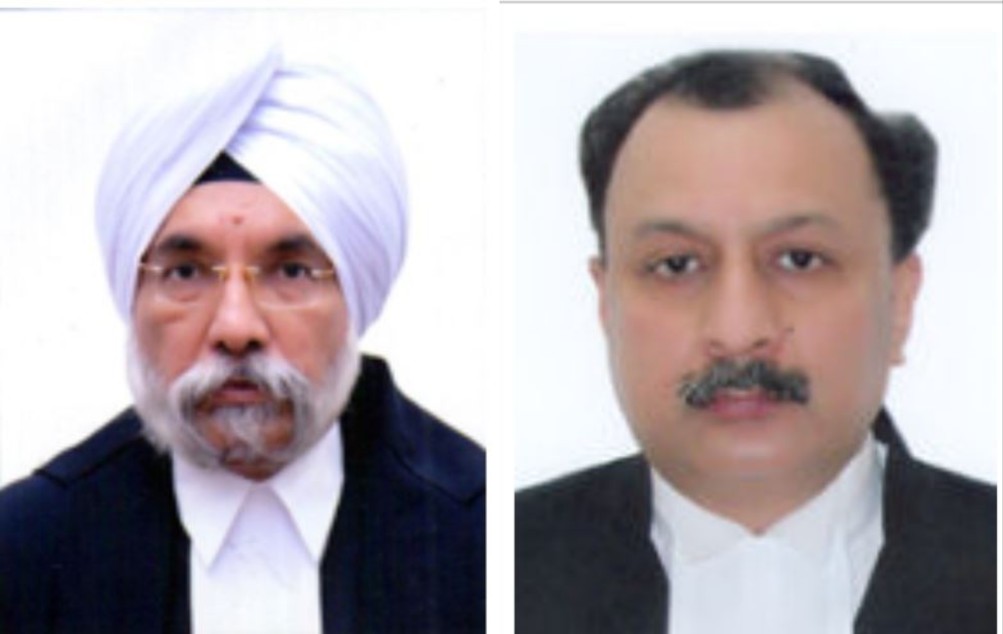Refusal by Returning Officer to receive incomplete nomination papers can’t be referred to as ‘ulterior motive’: SC

Read Judgement: N.S. Nandiesha Reddy v. Kavitha Mahesh
Pankaj Bajpai
New Delhi, August 5, 2021: The Supreme Court has held that the direction issued to the Registrar General of the High Court to initiate proceedings by lodging a criminal complaint against the appellant Returning Officer cannot be sustained and the appellant need not be exposed to prosecution.
The Bench of Chief Justice N.V Ramana, Justice A.S. Bopanna and Justice Hrishikesh Roy observed that notwithstanding the conclusion reached by the High Court on the aspect of improper rejection of the nomination paper, the manner in which the Single Judge has concluded that the appellant was inconsistent in his statements in the course of his evidence tendered by him was not justified.
Further, the conclusion reached that he is to be prosecuted, without the findings being recorded regarding deliberate or intentional falsehood, cannot be sustained, added the Bench.
The judgment came in light of the order passed by High Court of Karnataka at Bangalore, holding the election of the appellant Nandiesha Reddy from 151 K.R. Pura Legislative Assembly constituency in Bangalore Urban District to be void, in terms of Section 100 (1) (c) of the Representation of People Act, 1951, which had been assailed before this Court.
Further, another appellant, Ashok Mensinkai, had also assailed the order of the High Court in directing its Registrar General to register a complaint against him for proceeding for purpose of Section 193 IPC, as the appellant being the Returning Officer for the said election was found to have given false evidence before the Court.
The Bench found that the term of the Karnataka State Legislative Assembly was up to May, 2013 whereafter the subsequent election to constitute the afresh for the next term had taken place. Further, the order holding the election of Nandiesha Reddy to be void, was stayed by the SC and the appellant had completed the term of the Assembly for which he was elected. Hence, they found that the prayer had rendered itself infructuous and the appeal does not survive for consideration.
Coming to the case of the other appellant Ashok Mensinkai, the Bench found that mere reference to inconsistent statements alone is not sufficient to take action unless a definite finding is given that they are irreconcilable; one is opposed to the other so as to make one of them deliberately false.
The Bench also found that the High Court Judge did not choose to refer to the video recording of the proceedings at the office of the Returning Officer, to come to a definite conclusion as to whether the election petitioner had actually met the Returning Officer, and if so, the actual time and in that context a finding was not recorded that the depiction in the video recording was quite contrary to the statement of the Returning Officer so as to indicate that he had uttered deliberate falsehood.
“The election petitioner had not placed material to indicate that she had contested in any earlier election or had wide support base in the election concerned and it is in that view she had been shut out from the contest. Further there is no allegation that the Returning Officer was acting at the instance or behest of any other candidate who was feeling threatened by the participation of the election petitioner in the election process,” observed Justice Bopanna.
Observing that the election petitioner, as per her own case was seeking to present the nomination paper which was incomplete, it cannot be said that the Returning Officer with an ulterior motive had declined to receive the nomination paper and to cover up his folly was seeking to tender false evidence before the Court and thereby to justify his illegal action, added the Bench.
Hence, the Top Court set aside the direction given to the Registrar General of the High Court to register the complaint against the appellant, the then Returning Officer before the competent court for proceeding in accordance with law for the purpose of provisions of Section 193 of the Indian Penal Code.
Sign up for our weekly newsletter to stay up to date on our product, events featured blog, special offer and all of the exciting things that take place here at Legitquest.




Add a Comment